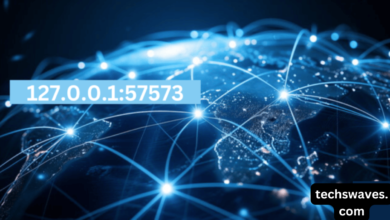In the world of music, innovation is never static. Over the years, we’ve seen technology transform the way music is composed, produced, and experienced. From digital synthesizers and DAWs (digital audio workstations) to AI-driven algorithms that assist with mixing and mastering, technology has reshaped the music landscape. One of the most exciting and futuristic advancements in this space is the development of AI music generators, specifically those that can create entire compositions based solely on text input.
Imagine being able to compose a symphony or craft an original song by simply typing out a description or concept. That’s exactly what AI music generators from text are making possible today. These systems leverage machine learning, deep neural networks, and natural language processing (NLP) to analyze text prompts and generate music that matches the tone, style, and emotional context described in the input. The results can range from simple melodies to full-fledged orchestrations, all created without a human composer ever picking up an instrument.
How Does an AI Music Generator from Text Work?
At the core of AI-driven music creation is the concept of training a model using vast datasets of existing music and written descriptions. These models learn patterns in both sound and language, enabling them to make connections between words and musical elements like melody, harmony, rhythm, and dynamics. When a user inputs a text prompt, such as “create a peaceful, acoustic guitar melody with a slow tempo,” the AI processes that text and generates a piece of music that matches those specifications.
AI music generators use various approaches to achieve this, often incorporating deep learning algorithms that mimic human creative processes. These systems are trained on genres, instruments, and even emotional cues embedded in musical compositions. The result is a system that not only understands what each musical element sounds like but also how different styles and moods can be conveyed through sound.
Some AI tools go a step further, allowing users to adjust parameters like genre, instruments, or even mood, to refine the music. For example, if you wanted a piece of ambient electronic music to evoke a sense of calm, you could input something like “a serene, futuristic electronic track with soft synths and gentle beats,” and the AI would generate a composition that fits the description.
The Creative Potential of AI Music Generators
AI music generators from text have opened up new possibilities for both amateur and professional musicians alike. For aspiring artists who may not have traditional music composition skills, these tools provide a way to create music based on concepts and ideas. You can write a few lines of text about the type of sound you’re envisioning, and an AI can bring that vision to life in ways that might have been difficult or time-consuming with traditional methods.
For professional musicians and producers, AI-generated music can serve as a source of inspiration or even as a collaborative tool. Musicians can use these systems to quickly generate a range of musical ideas based on a concept and then refine and build on them, much like a co-creator. This can accelerate the creative process, providing musicians with a wealth of raw material to work with and experiment upon.
Furthermore, AI can democratize music creation in ways that were previously not possible. Anyone with an internet connection can access these tools and create music, regardless of their background or experience in music theory. This opens up new opportunities for people who may not have had access to expensive production equipment or formal music education but still have creative ideas they want to explore.
The Impact on the Music Industry
The rise of AI music generators has the potential to disrupt the music industry in significant ways. First and foremost, it could change the landscape of music production. For instance, independent artists, who traditionally relied on external producers or complex software to bring their ideas to life, can now create professional-grade compositions in a matter of minutes, simply by providing a text prompt. This could lower the barrier to entry for musicians and open up new pathways for creativity, especially for those with limited access to traditional music production resources.
Additionally, AI-generated music could be used for various applications in the entertainment and media industries. From soundtracks for films, video games, and advertisements to background scores for podcasts and YouTube videos, AI music generators can provide a cost-effective and fast solution for creating original compositions. These tools could also be used to produce royalty-free music, allowing creators to access high-quality tracks without the need for licensing fees.
However, as AI-generated music becomes more ubiquitous, questions about authorship and copyright are likely to arise. If a piece of music is created entirely by an AI based on a text prompt, who owns the rights to that composition? Is it the person who provided the text input, the developer of the AI software, or the AI itself? These are complex legal questions that the music industry will need to address as AI tools become more integrated into the creative process.
The Future of AI and Music
While AI music generators from text are already making waves, the technology is still in its infancy, and the possibilities are endless. As AI systems continue to evolve, we can expect even more advanced capabilities, such as more nuanced control over musical genres, better understanding of complex emotional expressions, and the ability to incorporate user feedback to refine compositions in real-time.
In the future, we may see AI music generators not only produce entire compositions but also adapt in response to user preferences, offering suggestions for harmonies, counterpoints, or even lyrics. With advancements in conversational AI, musicians could dialogue with these systems to co-create music that feels even more dynamic and personal.
Ultimately, the question isn’t whether AI will replace musicians but rather how AI can become a powerful tool for enhancing the creative process. Just as digital tools like synthesizers and DAWs have become integral to modern music production, AI will likely become a key collaborator in the music-making process, giving artists more freedom to experiment and innovate in ways they never thought possible.
Conclusion
The development of AI music generators from text marks an exciting new chapter in the evolution of music creation. With the ability to transform simple descriptions into full-fledged compositions, these tools have the potential to revolutionize the way music is created, shared, and experienced. Whether you’re a seasoned musician looking for inspiration or a beginner with no formal training, AI offers an accessible way to bring your musical ideas to life. As technology continues to advance, the line between human and machine-generated music will blur, opening up new creative possibilities that were once the stuff of science fiction.





